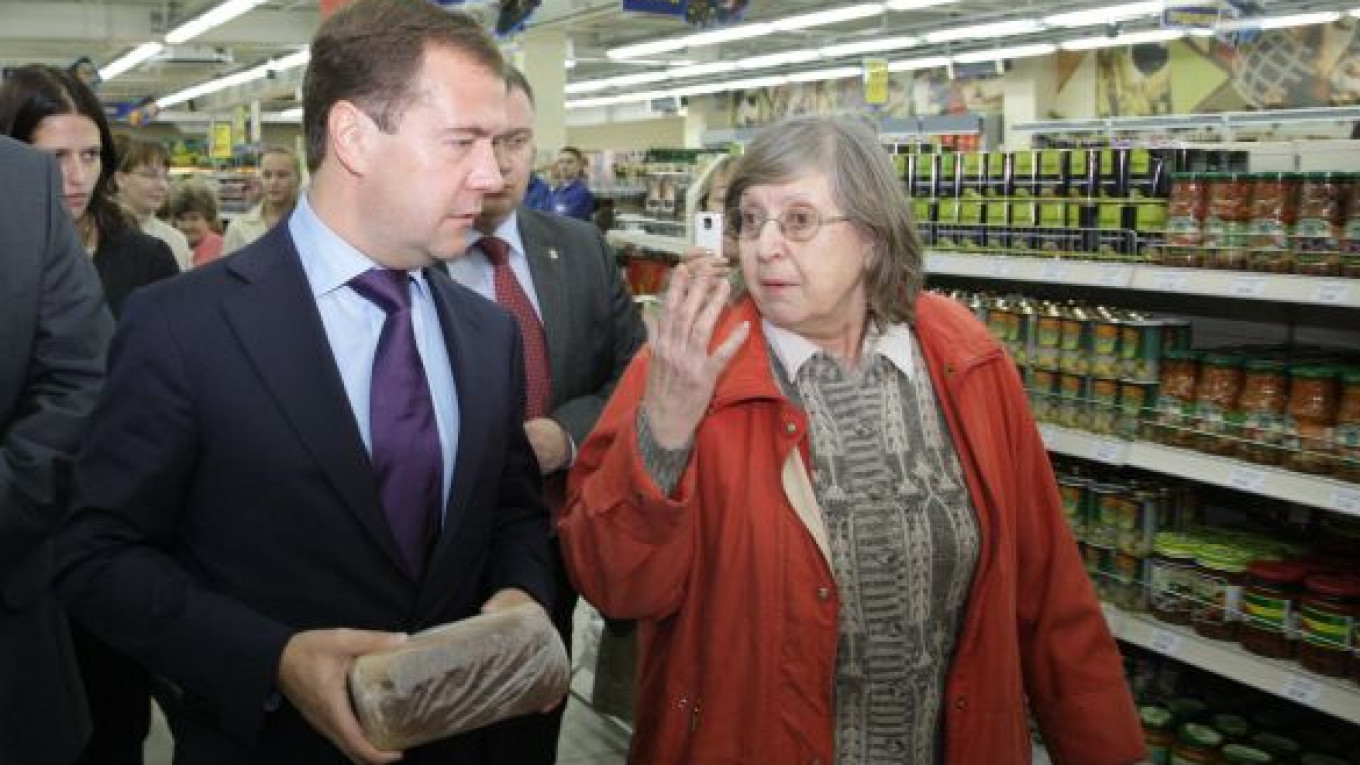President Dmitry Medvedev met with Norwegian Prime Minister Jens Stoltenberg on Wednesday to oversee the signing of an agreement to divide their Arctic waters, allowing the countries to develop lucrative energy deposits and regulate fishing.
The deal — signed in Murmansk near the border with Norway — ends a four-decade dispute over the waters. The countries broadly agreed on the demarcation during a visit by Medvedev to Norway in late April.
"I believe that this [agreement] will mark a new era in our bilateral relations," Stoltenberg said, Interfax reported.
The agreement establishes how Russia and Norway will jointly explore for oil and gas in the once disputed waters, which cover roughly 175,000 square kilometers in the Arctic and Barents seas.
Analysts say most of the oil and gas deposits lie on Russia's side of the border, but its oil companies are not capable of working in the notoriously difficult, deep waters without Norwegian expertise.
The formal maritime border, dividing the area in half, will be used to regulate fishing in the area, which has been a sore subject between Russia and Norway.
The Agriculture Ministry's health watchdog temporarily banned imports of Norwegian salmon in 2006, saying it contained too much heavy metal. The move was widely seen as retaliation for repeated detentions of Russian fishermen along the border.
The countries were also at odds over a shareholder dispute on whether to combine Russian telecoms firm VimpelCom with Ukraine's Kyivstar. Norwegian telecoms holding Telenor lost the dispute after years of court battles with Altimo, a unit of Alfa Group.
Environmentalists welcomed parts of Wednesday's agreement to curb ecological risks, although they said Moscow and Oslo should do more to protect the area.
"The nature of northern seas is so vulnerable and sensitive and the risks are so high that consequences similar to those that happened in the Gulf of Mexico may lead to catastrophic consequences for the life of the Arctic," said Nina Lesikhina, secretary of the Northern Coalition, an alliance of environmental organizations.
"Despite that, Shtokman Development, which includes Norway's Statoil, ignores environmental safety issues and public opinion," she said.
The Gazprom-led consortium has pushed development of the difficult gas field back to 2016 amid falling demand for the fuel. France's Total has 25 percent in the project, while Statoil has 24 percent.
Medvedev said there was "good potential" for further energy cooperation, including on the gas-rich Yamal Peninsula in northwestern Siberia. Norway could use their technology and experience to help Russia modify its oil, gas and chemical industries, he said.
The leaders also said a potential agreement allowing visa-free travel for people who live along the shared border could be signed later this fall.
At the end of Medvedev's visit to Murmansk, he stopped by a local grocery store to check on prices for bread, along with Governor Dmitry Dmitriyenko. At one point, Medvedev took out a 50 ruble note and purchased the store's cheapest bread offering, a loaf of black bread for 14.9 rubles, or about 50 cents.
"I've noticed that bread has not gone up in price that much, 1 or 1.5 rubles," Medvedev said.
He also promised a local citizen who complained of "unaccountable officials" that they would be "put in their places."
Natural Resources and Environment Minister Yury Trutnev said Wednesday that his ministry has proposed to expand the list of companies that have the right to develop offshore oil and gas fields, Reuters reported.
"We need investment and technology. We need to attract business there," Trutnev told reporters in Murmansk.
A Message from The Moscow Times:
Dear readers,
We are facing unprecedented challenges. Russia's Prosecutor General's Office has designated The Moscow Times as an "undesirable" organization, criminalizing our work and putting our staff at risk of prosecution. This follows our earlier unjust labeling as a "foreign agent."
These actions are direct attempts to silence independent journalism in Russia. The authorities claim our work "discredits the decisions of the Russian leadership." We see things differently: we strive to provide accurate, unbiased reporting on Russia.
We, the journalists of The Moscow Times, refuse to be silenced. But to continue our work, we need your help.
Your support, no matter how small, makes a world of difference. If you can, please support us monthly starting from just $2. It's quick to set up, and every contribution makes a significant impact.
By supporting The Moscow Times, you're defending open, independent journalism in the face of repression. Thank you for standing with us.
Remind me later.






